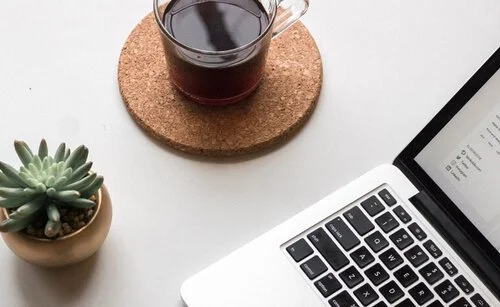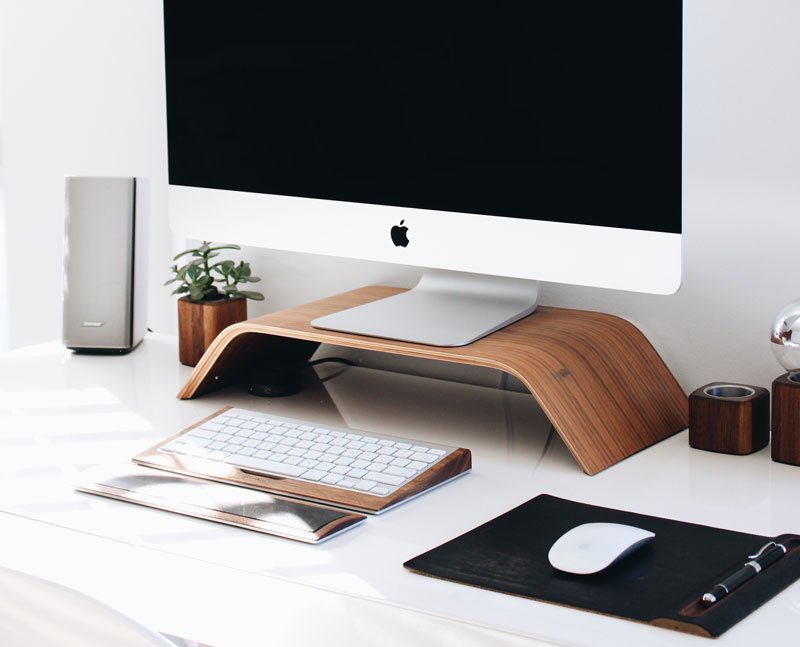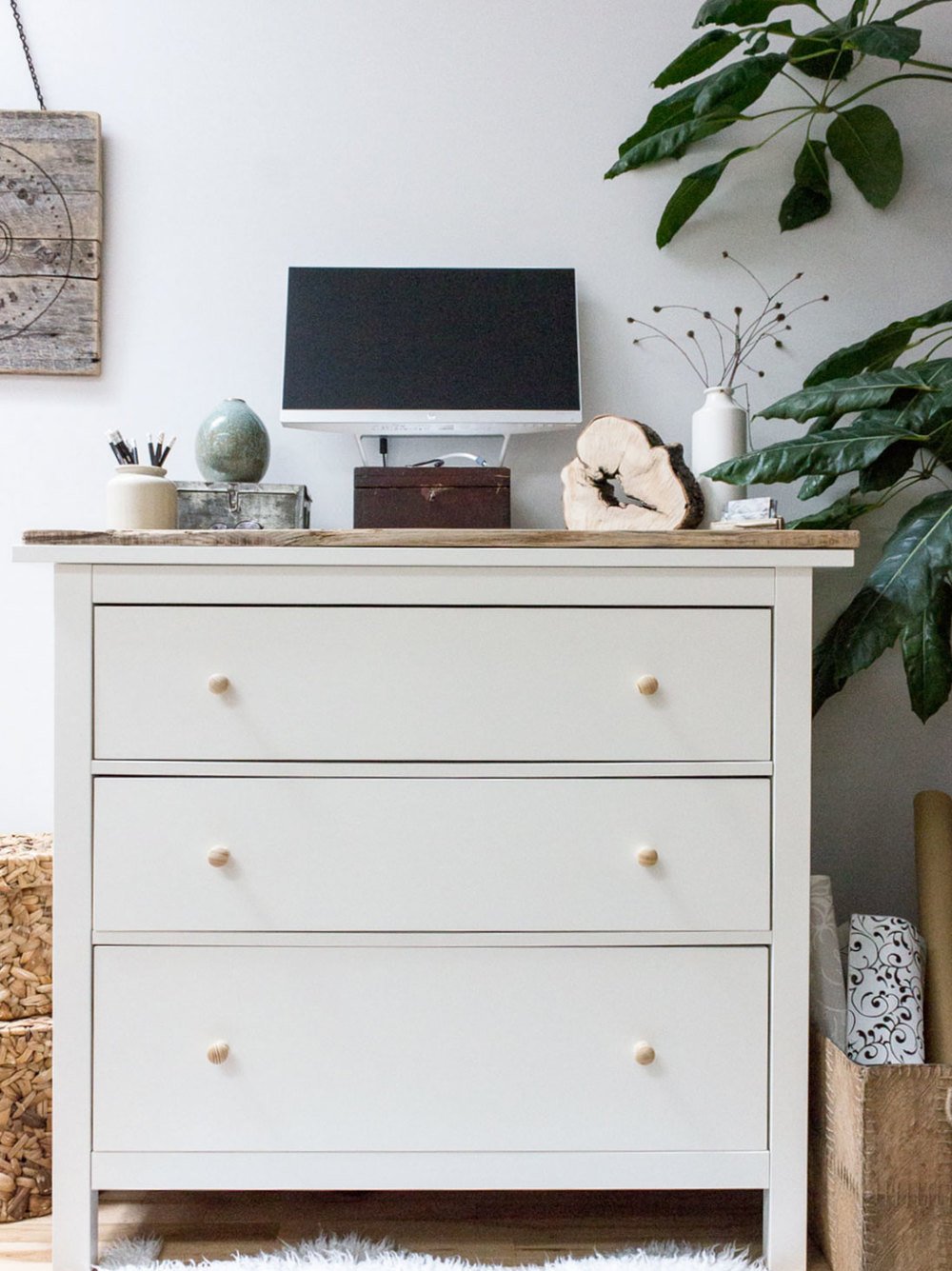8 Tips For A Calm, Healthy Workspace
Whether you're a cubicle dweller, have a corner office, or work from a tiny corner in your home, refreshing your office space to create a healthy, soothing and comfortable environment will allow you to be less stressed, more productive and creative and more balanced overall.
Here are 8 easy ways to tweak your workspace for optimal health and wellbeing:
1. Declutter your workspace.
The state of your desk is the state of your mind. It's proven beyond a doubt. So clean off the clutter from your desk to get more clarity and focus. That goes for your online desktop too.
Get to-do lists, spreadsheets and notes online in the cloud so they're off your desk (plus available on all your devices when you need them).
Check out the many available apps for list-making and reminders, thereby reducing paper consumption and post-it note clutter on your desk. If you prefer handwritten to-do lists, keep them all in one notebook.
Purge papers and keep only what's absolutely necessary, then file them away. Keep one in-box on your desk for things you need to get to in the short-term (and schedule time in your calendar to get to them).
Throw away stuff you don't need - old business cards, old contact lists, and any garbage or unwashed dishes!
Limit newsfeeds, apps, programs and any other open tabs to only what you absolutely need for the project you're working on.
Turn off sound and pop-up notifications that distract you even for a micro-second. That goes for your phone as well.
Clear off any unused or underused icons on your desktop. Pin your most used tools to your taskbar.
Download a beautiful, joyful and/or calming desktop wallpaper for your devices and get rid of cluttery, distracting backgrounds if you have them. DesignLoveFest offers lovely free ones.
2. Make your desk functional and visually appealing.
Keep things within reach that make your daily work life easier, but organize them so that they're visually calming and appealing.
Use vintage wooden boxes or pretty bowls to hold business cards, paper clips and elastics.
Use a meaningful favourite mug to hold pens and pencils (and keep them on whichever side is your dominant hand).
Keep a pretty box of tissues handy.
Set your monitor so it's straight on in your line of sight without having to crane your neck.
Keep your phone on your right, and reference materials and your in-box on your left.
Hang a motivating or inspirational calendar within eyesight.
Have one or two personal photos or quotes, but not too many as to distract you.
3. Ground yourself in your space.
Feng Shui says that we live life through our senses, and if we are too caught up in mental activities such as working on our computers, texting, attending meetings, and worrying, we need to ground ourselves again so that we can be present in our sensory world. So bring in elements to your workspace that are grounding.
Introduce plants to absorb excess electrical energy, freshen the air, and connect you with nature (studies show we're 12% less stressed with a plant in our office).
Introduce other earth elements like rocks, shells or wood and keep them where you can touch them - maybe in a bowl on your desk or as a table centrepiece. Seeing and touching these natural items will help ground you and take you out of your own head.
Eliminate electricity running into your space that's not necessary. That means plug all computers, TVs and phones into a power bar and turn it off when not in use. Unplug any small appliances that you rarely use in your office (like a toaster).
4. Give aromatherapy a try.
Essential oils can have a powerful therapeutic effect, and they also help clean the air of toxins that are often in office spaces through off-gassing of furniture and carpeting. Use essential oils at work with a misting diffuser, a reed diffuser, or perhaps by hanging a sachet of lavender in your office. Lavender can be especially soothing and calming: research says it can reduce computer errors by 25%!
5. Arrange for optimal flow.
A good flow of chi (energy) in your workspace will help relieve stress and restore balance. It makes sense: just as we do better when we can physically flow easily through our spaces, so does chi. Look for places where energy could be leaking out or being blocked in your office.
Don't place your desk facing a window where your creative energy will leak right out. Instead, face your desk inward toward the room and the door, so you'll be sitting in a place of power, able to capture the flow of good energy coming in.
Try not to block entryways with large pieces of furniture or half-walls that block energy coming inside. Keep them free of clutter.
6. Get comfortable.
Comfort, health and productivity go hand in hand.
An ergonomic chair will ensure your feet are flat on the floor and your arms at a 90 degree angle when typing.
Place your computer and keyboard in the centre of your desk in a spot that's ergonomically comfortable for you to sit at.
Use a comfy pillow if needed. It'll make a world of difference to your back and shoulders. Better yet, move to a standing desk!
Optimal room temperature for productivity is 25 degrees Celcius or 77 degrees Fahrenheit. Studies have shown that workers make 44% more mistakes in cold temps than at optimal room temperate. If you can't control the heat in your office, bring in a small portable space heater.
If you have bad overhead lighting, give your eyes a break and turn it off in favour of a lamp on your desk with a daylight LED bulb. Or turn off lighting in favour of natural light if you have a window nearby.
7. Drink lots of water.
Keeping a really nice water bottle on your desk will encourage you to use it often and take it with you to meetings. I like this one. Also keep a ceramic or glass refillable mug for tea or coffee to cut down on paper and plastic consumption (and a stack of ugly, dirty cups on your desk).
8. Embrace silence.
Constant noise can create stress, so encourage quiet time during the workday if at all possible.
Drown out noise from your office mates by wearing noise-blocking headphones.
Start a silent hour once/day in your area and encourage everyone to keep to themselves and save questions and chit chat until after the 60 minutes has passed.
Turn off your phone and email ringers and sound notifications, at least during this hour if not all day.
Take a few minutes a few times a day to sit still and take some deep breaths in silence. It will help you reset your mind.
In addition to silent time, you might also consider listening to Brain FM - music scientifically proven to stimulate the brain to improve performance.























